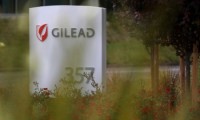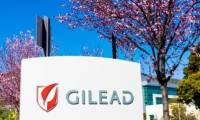-
Continuing to Increase Investment in China and Bringing Chinese Innovative Medicines to the World
- Source: drugdu
- 52
- November 9, 2024
-
FDA Awards Accelerated Approval to Gilead Sciences Drug for Rare Liver Disease
- Source: drugdu
- 75
- August 16, 2024
-
Gilead Sciences Signs Yet Another R&D Alliance for Multi-Target Cancer Therapies
- Source: drugdu
- 104
- March 8, 2024
-
Gilead Sciences opens a new chapter, publishes the world’s ‘hardest book to read’ to reveal patients stuck in the margins
- Source: drugdu
- 114
- September 16, 2023
-
Gilead Sciences to Acquire Cell Design Labs for $567 Million
- Source: qc.nasdaq
- 427
- December 11, 2017
-
Arcus Biosciences obtains loan facility with Hercules Capital worth $250m
- Source: drugdu
- 72
- August 30, 2024
-
FDA Grants Accelerated Approval to Gilead’s Livdelzi for the Treatment of Primary Biliary Cholangitis
- Source: drugdu
- 105
- August 19, 2024
-
Gilead’s PBC therapy Livdelzi bags accelerated approval
- Source: drugdu
- 66
- August 17, 2024
-
Gilead expands FDA label for Biktarvy with Phase I pregnant HIV patient data
- Source: drugdu
- 80
- May 5, 2024
-
Gilead writes $2.4B off Trodelvy as CEO underscores ‘time of focused execution’
- Source: drugdu
- 126
- April 30, 2024
your submission has already been received.
OK
Subscribe
Please enter a valid Email address!
Submit
The most relevant industry news & insight will be sent to you every two weeks.













